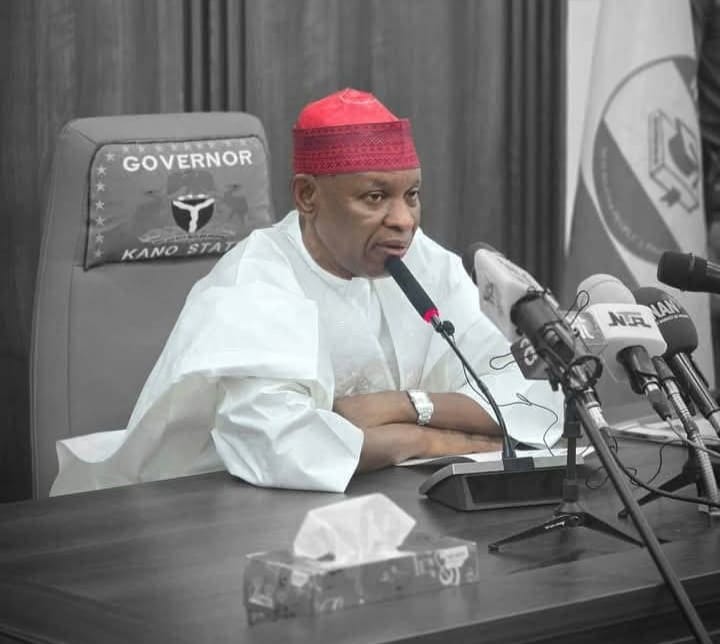By Usman Gwadabe
Hajj, the fifth pillar of Islam, is a sacred obligation enjoined upon every financially and physically able Muslim. The Qur’an commands: “And proclaim the pilgrimage among men: they will come to you on foot and on every lean camel, coming from every distant path.” It further stipulates that Hajj must be performed in specific months and in a state of spiritual discipline
.READ ALSO: Hajj 2024: Kano Center Officers Perform Tawaf, Offer Special Prayers for Governor Abba‘ Success
While Hajj is traditionally a personal spiritual journey, Kano State Governor, Alhaji Abba Kabir Yusuf, has redefined the narrative by using the platform to promote social inclusion and compassion.
In an unprecedented move, Governor Yusuf allocated Hajj seats to a diverse group of Kano citizens – from traditional rulers and religious clerics to people with disabilities, artists, media practitioners, and notably, orphans under government care. Among these categories, the inclusion of two orphans as official pilgrims this year stands out as a profound act of humanitarian leadership.
The governor’s concern for orphans is not new. Shortly after assuming office, he visited the Nassarawa Orphanage Home during the Eid-el-Fitr festivities, where he shared a meal with the children and made a solemn promise: the government would shoulder full responsibility for the education, healthcare, and welfare of all 95 orphans in the facility.
“You are now my children,” the governor told them. “We will take care of you from primary to tertiary education. You will begin to feel the good side of life, Insha Allah.”
True to his word, during the just concluded Ramadan, Governor Yusuf hosted the orphans at the Government House for Iftar – a gesture previously reserved for emirs, lawmakers, commissioners, and religious leaders. It was at one of these gatherings that the governor announced the allocation of two Hajj seats to the orphans.
The moment was met with overwhelming joy. One of the beneficiaries, Abdullahi Muhammad, expressed deep gratitude on behalf of the orphans, describing Governor Yusuf as a father figure. A caregiver, Malama Maryam, likened the governor’s gesture to that of a caring parent who treats adopted children as his own.
This initiative is a milestone in Kano’s history. It is possibly the first time orphans in government custody have been sponsored to perform Hajj. More importantly, it sets a moral precedent for other state leaders, particularly in Muslim-majority regions, to emulate.
Islam places great emphasis on the care of orphans. Prophet Muhammad (peace be upon him) said: “I and the one who sponsors an orphan will be in Paradise like these two,” holding his index and middle fingers together to illustrate closeness. Another narration describes the best Muslim household as the one where orphans are treated kindly.
By facilitating this sacred journey for orphans, Governor Yusuf is not only fulfilling a social obligation but also earning spiritual rewards of immense magnitude. The Prophet (peace be upon him) taught that praying in Masjid al-Haram in Makkah is worth 100,000 prayers elsewhere. A pilgrim staying in Makkah for 30 days, praying five daily prayers, would accumulate rewards equivalent to over 12,000 years of worship.
Thus, the act of sponsoring a pilgrim—especially one from a vulnerable group—carries immeasurable spiritual benefit. It is an act that exemplifies the Hadith: “Whoever initiates a good practice will receive its reward and the reward of those who follow it.”
As this year’s pilgrimage approaches, which notably coincides with a Friday—the same day the Prophet performed his only Hajj—Governor Yusuf’s decision to include orphans in the journey adds a historic and spiritual dimension to his administration’s legacy.
May Almighty Allah reward him abundantly and inspire other leaders to follow suit in uplifting the lives of the most vulnerable members of society.

